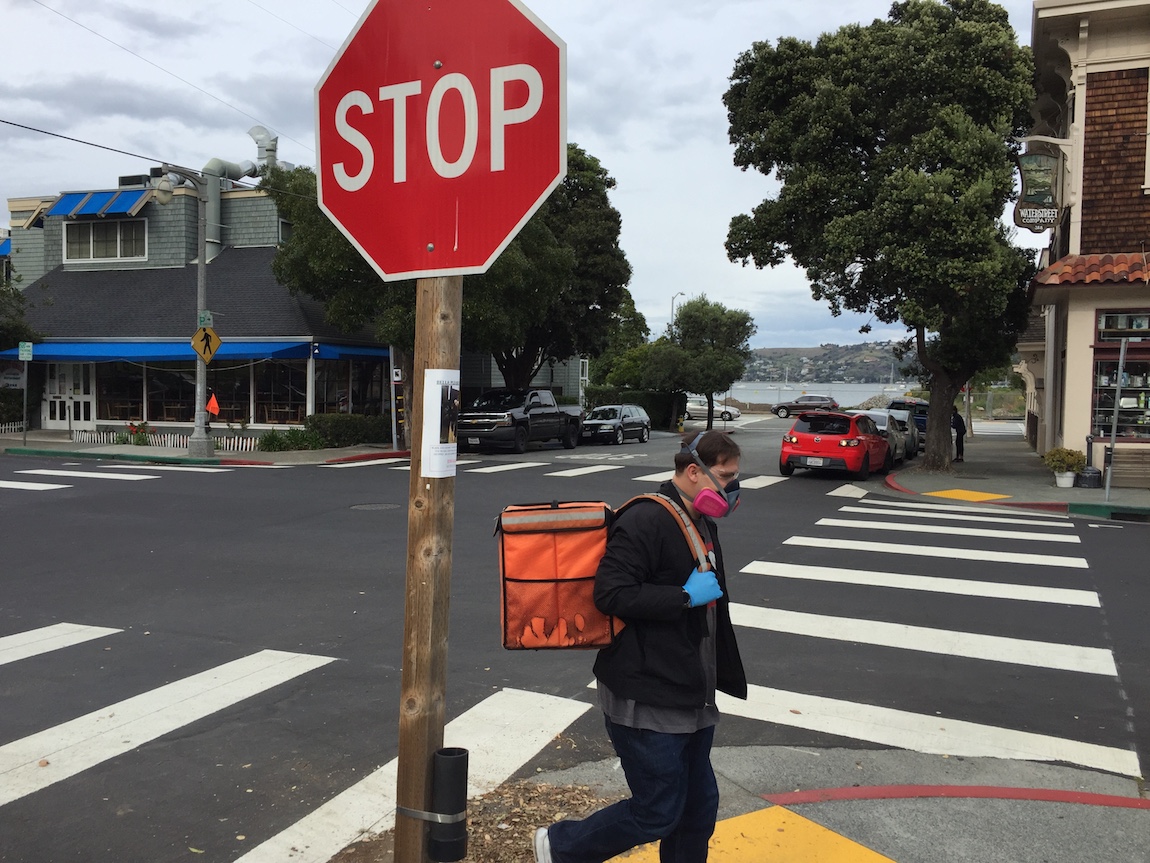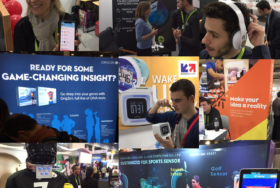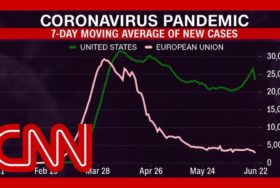
Our office is in sleepy Sausalito across the bay from San Francisco. Population 7,000. Or as we like to describe this scenic nautical village, “more boats than people.” Yet the fallout from the global pandemic has touched down here too. This Sunday, not 25 feet from our building, we spotted the man in our lead photo trudging down our tiny main street in full covid-19 survival gear – ventilator mask, blue latex surgical gloves, and goggles. He was a Caviar delivery man, a big insulated food carton strapped onto his back, with meals destined for locals hunkering down at home. This human delivery ant looks like he will survive. Not so sure about the gig economy.
This is no joke. Hundreds of thousands if not millions of Americans now rely on jobs or sources of income that didn’t exist a decade ago – Uber and Lyft drivers, Grubhub and Caviar delivery dudes, e-scooter rangers, not to mention Airbnb hosts. The sudden specter of covid-19 raises two prime questions. First, what’s the appropriate individual response? If the virus passes quickly the wise move for these workers and their families may be to stay the course. But if the crisis worsens they’d better start thinking back-up plan.
During hard times the demand for non-essential services and products vanishes. Let’s take two of the biggest employers and sources of income for gig workers – Uber and Airbnb. Both are at the front lines of covid-19 exposure. Countless customers and germs pass through their cars or apartments. Since gig workers are not employees, Uber and Airbnb cannot force their thousands of drivers or hosts to maintain higher cleaning standards. Does anyone really trust an Uber to be clean, or an Airbnb to be as thoroughly disinfected as a top hotel room? The disruption that helped ride-sharing and house-sharing topple the taxi business and endanger the hotel industry is now facing what pundits call an existential threat. On Monday Sequoia Capital sent out a memo telling investors and founders to expect the unthinkable.
There’s an irony here. Many gig workers have known for some time that their days are numbered, that like the meals many of them deliver, they have a built-in expiration date. Uber has made it ruthlessly clear that it intends to replace its army of digital serfs with driverless cars. Amazon already deploys delivery drones, and industrial robots clean the bathrooms in many hotel chains. But none of the futurists predicted the near-term catastrophe facing us today. We won’t make any predictions either but we will pose some questions.
Millennials and Gen-Xers pumped up the explosion of gig economy services with the easy money of the boom years from 2012 to 2019. Economies rise and fall. Nothing stays up forever – neither stocks, nor home prices, nor year-over-year growth. If consumers turn cautious how essential will it be to ride an Uber or a Lyft or have take-out food delivered to your bunker? During the crisis, Uber’s stock has sunk, while Campbell’s Soup has been on a tear. Yes, canned food is a pretty safe bet in these apocalyptic times. Massive behavioral shifts are taking hold, fueled by fear. Uber drivers have tested positive for the virus, and Airbnb hosts are freaking out because the platform doesn’t permit them to cancel guests from many problematic hot zones. How secure will that make riders and guests? Another kind of disruption is coming. Now people may choose safety over convenience, and demand the increased security of regulation over Silicon Valley’s minimum viable product mantra. The truth is that these newfangled, improvised services never really provided healthcare, sick leave, benefits or decent wages for workers. And now they carry a fresh, intangible risk.
Our Caviar worker ant is a sign of the palpable frustration of a generation of Gig workers losing faith in the model. As he passed by loaded up with other people’s comfort food, we tentatively offered an exhortation: “Thank you for protecting us.”
He wasn’t having any of it. The libertarian inequality at the heart of these new VC-backed businesses was showing through what you could see of his face. His words a bit garbled by the mask, he snapped back, “If I were sick this wouldn’t protect you,” adding angrily, “This protects me!”
From the virus perhaps. But it’s anyone’s guess which sectors of the gig economy will survive.


